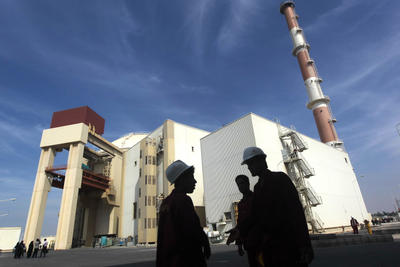India plans to build some 25,000 MW of nuclear generating capacity using Russian, French and perhaps US and Japanese technology; Pakistan is building a second nuclear plant with Chinese assistance; and Sri Lanka is reportedly in talks with China to build nuclear capacity.
Bangladesh, like all of its South Asian neighbours, suffers from serious power shortages. With average demand exceeding 6,000 MW and generation at only 4,000 MW, outages are a daily occurrence. Both the World Bank and the Asian Development Bank have warned Bangladesh that current growth rates will be unsustainable if this issue is not addressed. These issues meant that resolving the country’s power problems was a major promise of Prime Minister Sheikh Hasina, elected in 2008 with plans to install 9,000 MW of new generating capacity. The construction of coal and natural gas-fired plants, and a plan to import power from hydro plants in India, are also on the government’s agenda.
Bangladesh’s deal with Russia involves the construction of a nuclear plant at Pabna, in the country’s west, for a reported US$1.5 – 2 billion. It will involve two reactors with a total capacity of 2,000 MW, scheduled for completion in 2018. Russia will take care of the nuclear fuel’s supply and disposal, train the Bangladeshis and work with them in exploring deposits of uranium and thorium. The agreement follows an initial memorandum of understanding signed in May 2009 and a framework agreement in May 2010.
Relations between Bangladesh and Russia have not always been terribly close. The Soviet Union (then, of course, a de facto ally of India) did support Bangladesh in its war of independence from Pakistan in 1971. And after the war, it helped to clear mines from Bangladeshi ports and gave a dozen MiG fighter aircraft to the newly formed Bangladesh Air Force. But relations soured after a 1975 military coup, which brought Bangladesh into closer alignment with the United States and China, while the Soviet Union remained out of favour for the rest of the Cold War.
In 1998, Bangladesh purchased eight advanced MiG-29 ‘Fulcrum’ fighter aircraft from Russia, although it could not afford to operate them. (The then Prime Minister, Sheikh Hasina, was later ordered to stand trial on corruption charges over the deal, although these were quashed after she returned to power in 2008.)
Some have expressed surprise at the deal with Russia. China, South Korea and Pakistan had also expressed interest in developing Bangladesh’s nuclear capacity, and a preliminary Memorandum of Understanding was signed with China in 2010. However, the Bangladesh government claims that the Russians offered the best technology and the best deal.
But wider strategic implications could also be in play, signaling a step by Bangladesh away from Chinese influence, and a desire to position itself between the big powers. Or still the deal could have been based on purely economic calculations. In any event, the announcement will certainly be well received in New Delhi, long suspicious of Beijing’s interests in South Asia and still of the view that Moscow is a strategic friend. Whether the Russian deal will be implemented, especially after recent events in Japan, is another question.
Dr David Brewster is a Visiting Fellow at the Strategic and Defence Studies Centre, Australian National University.

